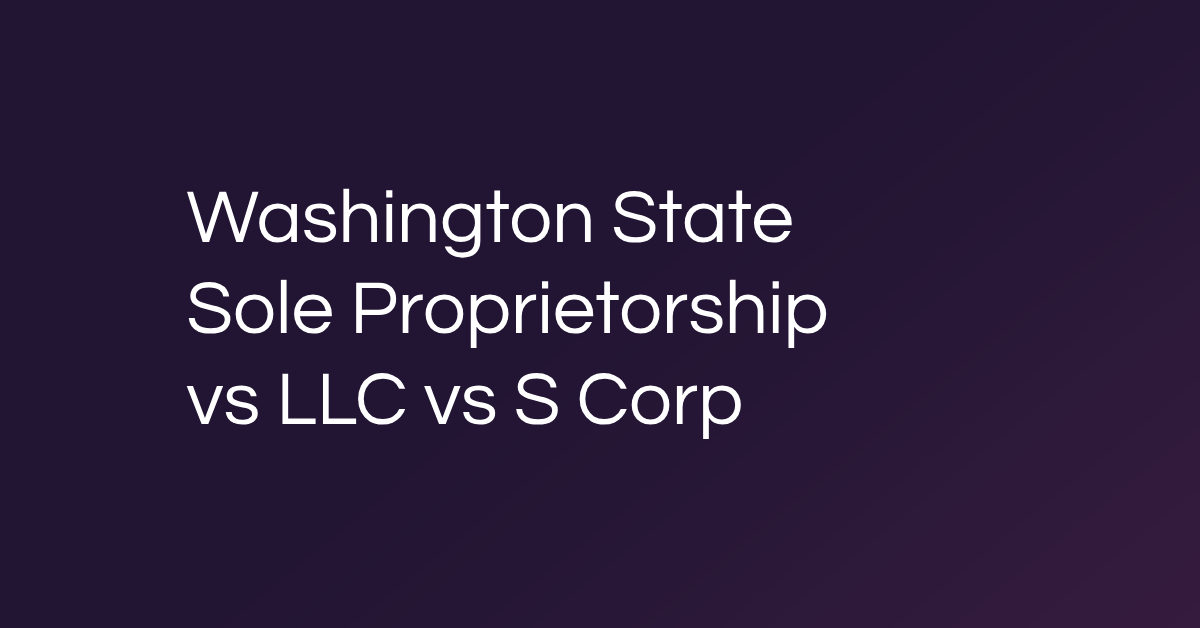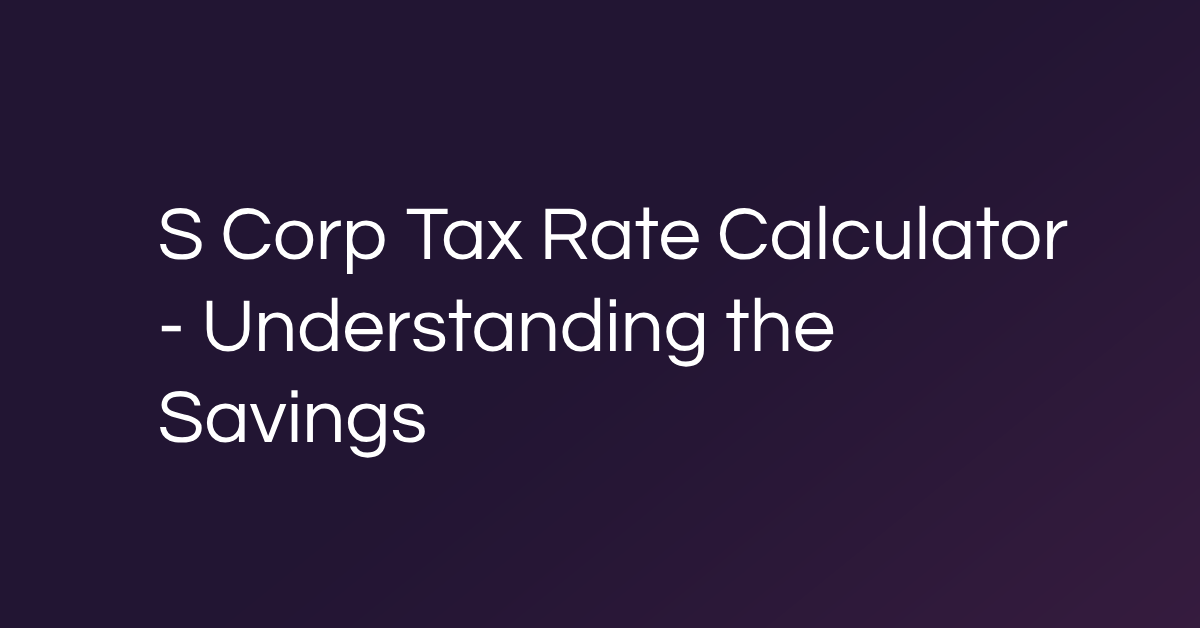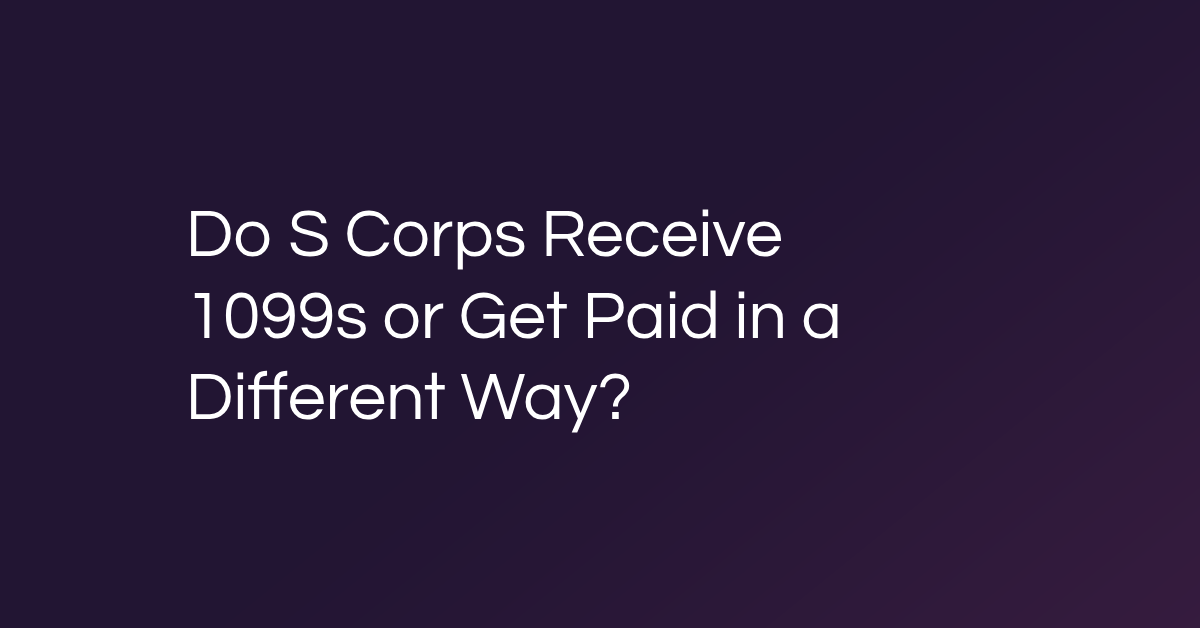If you’re working full-time but exploring switching to fractional work or entrepreneurship, choosing a business structure is a critical first step.
Washington State provides several business entity options, each with its own regulations and benefits. Running a business as a sole proprietor provides complete control and easy setup, but also carries financial risk. Many business owners in Washington explore different structures, such as an LLC or an S corporation, which offer liability protection and tax flexibility in the Evergreen State. Knowing the distinctions between these structures helps new business owners in Washington select the best path forward.
What is a sole proprietorship in Washington State?
A sole proprietorship is the most basic business structure. It allows individuals to operate a business without forming a separate legal entity –– meaning all profits, debts, and liabilities are directly tied to the owner.
Many new entrepreneurs in Seattle, Olympia, and beyond choose this structure because it requires minimal paperwork and no formal registration beyond obtaining necessary business licenses or permits. Since the owner and business are the same legally, tax filing is straightforward — the owner reports the business income on a personal tax return.
While a sole proprietorship provides an easy way to start a business in Washington, it does not offer liability protection. Washington entrepreneurs seeking to limit personal financial exposure often explore options like forming an LLC.
Advantages of a sole proprietorship in Washington
For many freelancers and independent contractors, this structure provides a hassle-free way to start operating without extensive paperwork or complex legal requirements.
- Fast and low-cost setup: Unlike LLCs or corporations, this setup does not require formal state registration, reducing administrative costs.
- Complete control: Business owners make all operational and financial decisions without needing approval from partners or shareholders.
- Simplified taxes: Sole proprietors report income on their personal tax returns, eliminating the need for separate business tax filings.
While these advantages make sole proprietorships appealing, long-term business owners may find the lack of liability protection and funding opportunities limiting as they scale their operations.
Disadvantages of a sole proprietorship in Washington
While a sole proprietorship in Washington State is easy to start, it has limitations that can impact long-term business success. Entrepreneurs should consider these challenges when deciding on their business structure.
- Unlimited personal liability: There is no legal separation between the business and the owner, meaning personal assets—such as savings and property—are at risk if the company incurs debt or legal issues.
- Limit company’s access to funding: Banks and investors typically prefer structured business entities, making it harder for sole proprietors to secure loans or outside investments.
- Challenges in scaling: As the business grows, independently managing finances, taxes, and legal responsibilities can become overwhelming.
Because of these risks, many entrepreneurs eventually transition to an LLC for added protection and financial flexibility.
Why consider an LLC instead?
While sole proprietorships are straightforward to set up, an LLC provides crucial legal safeguards and expanded financial opportunities.
- Tax flexibility: LLCs allow pass-through taxation but also offer the option to elect S-corp status for potential tax savings.
- Credibility and growth: Due to their structured framework, clients, lenders, and investors often prefer to work with LLCs over sole proprietors.
- Asset protection: LLC owners are not personally responsible for business debts or lawsuits.
Entrepreneurs ready to transition to a more secure business model can take advantage of Besolo’s Solo LLC — an all-in-one platform that provides everything from LLC formation in Washington to help with Washington business tax filings.
Washington-specific considerations for LLCs
Washington State offers several benefits for LLC owners, making it an attractive option for entrepreneurs seeking legal protection and operational flexibility. Unlike sole proprietorships, LLCs in Washington provide limited liability, shielding personal assets from business debts and lawsuits.
Additional benefits include:
- No state income tax: Washington does not tax personal income, allowing LLC owners to retain more earnings.
- Straightforward registration: Forming an LLC requires filing a Certificate of Formation and maintaining a registered agent in the state.
- Business credibility: Many clients and investors prefer more structured entities.
Washington’s small business guide outlines LLC regulations and compliance requirements, helping entrepreneurs navigate the formation process effectively.
Steps to transition from sole proprietorship to LLC
Switching from a sole proprietorship to an LLC in Washington State provides stronger liability protection, tax flexibility, and greater business credibility. While sole proprietorships require minimal setup, LLCs establish a legal distinction between the business and its owner, reducing personal financial risk.
How to transition to an LLC:
- Choose a business name: Ensure it’s unique and complies with Washington’s naming rules.
- File a certificate of formation: Submit the required form and fees to the Washington Secretary of State.
- Create an operating agreement: Outline ownership and management responsibilities.
- Obtain an EIN: Secure a new Employer Identification Number (EIN) from the IRS.
- Update business licenses and permits: Ensure compliance with Washington State business regulations.
Besolo simplifies LLC formation, helping entrepreneurs navigate the transition seamlessly.
Additional tips and resources
Building a successful business in Washington requires more than just selecting the right structure. Entrepreneurs should take proper steps to ensure long-term stability and growth:
- Separate personal and business finances by opening a business bank account and using accounting tools to track expenses efficiently.
- Understand state tax obligations since Washington has no state income tax, but businesses may still be subject to other taxes.
- Leverage state-funded resources that offer mentorship, funding opportunities, and networking events for business owners.
- Develop a strong business plan to improve decision-making and increase the chances of securing financing (if needed).
Make your business a business that lasts
Launching a business in Washington State as a sole proprietor is simple but lacks the safeguards and flexibility required for long-term stability. Without liability protection, your personal assets are on the line, and scaling can be complex.
An LLC gives you the legal protection, financial advantages, and credibility that help businesses thrive. If you’re serious about turning your side hustle into a sustainable venture, structuring it right from the start is key.
Start building a business designed for success. Protect your future and simplify your LLC setup with Besolo — become a member today!








